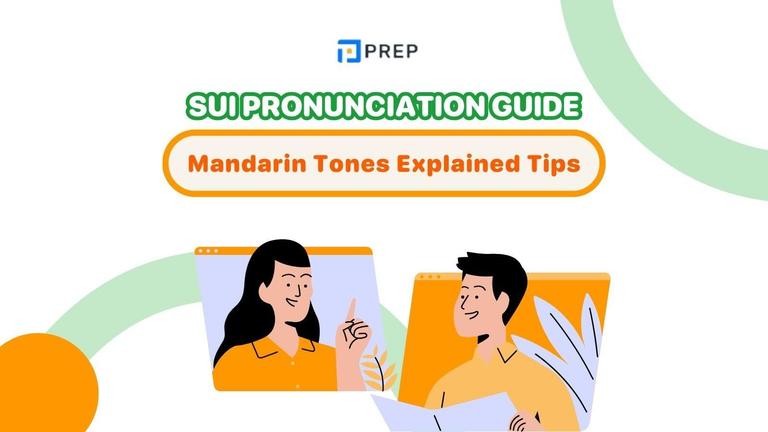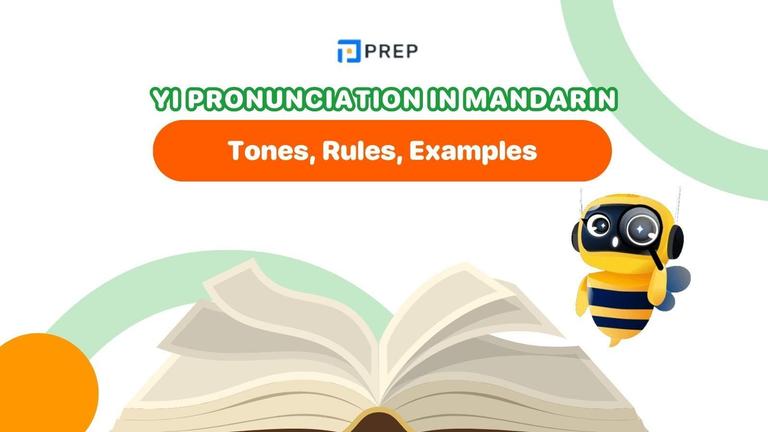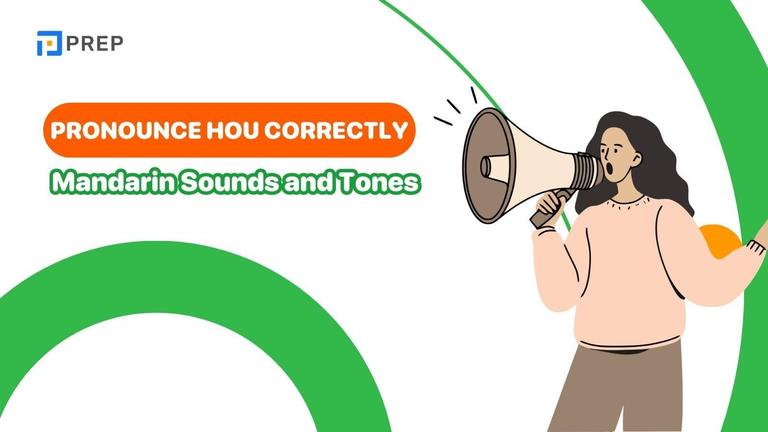Differentiate different titles in English: Mr, Mrs, Miss, Ms, Sir and Madam
Mr, Mrs, Miss, Ms, Sir, and Madam are the six most common titles in English. How should these words be used correctly? Refer to the article below to fully understand the meanings, usage, and detailed distinctions of Mr, Mrs, Miss, Ms, Sir, and Madam!
I. What are titles in English?
Titles in English are words used to address or refer to someone's name or surname. The common titles in English that are often used are Mr, Mrs, Miss, Ms, Sir, and Madam. For example:
- Good morning, Mr. Brian!
- Hello, Miss Nancy!
- Mrs. James will go with me to the exhibition tomorrow.
- Miss Emily was my sixth-grade math teacher.
- Would you like to see the menu, sir?
- May I carry your suitcases for you, Madam?

II. A detailed differentiation between Mr, Mrs, Miss, Ms, Sir and Madam
1. What is Mr.?
Mr. (an abbreviation of "Mister") means "gentleman" and is pronounced as /ˈmɪs.tər/. Mr. is a title in English that precedes the name of a man, regardless of whether he is married or not. Another variant of this form of address in English is "master", which is commonly used for addressing young boys (under 12 years old) and is not abbreviated.
Mr + Name/ job title/ Full name
For example:
- Good morning, Mr. David!
- Mr. John gave me a dress.

2. What is Miss?
Miss means "young lady" or "unmarried woman." It is a title in English used for females, depending on their age. We use Miss to address any unmarried woman. Miss is not suitable for addressing mature women or women who are married or divorced.
Miss + name/ job title/ full name
For example:
- How are you, Miss Laura?
- Hello, Miss Nancy!
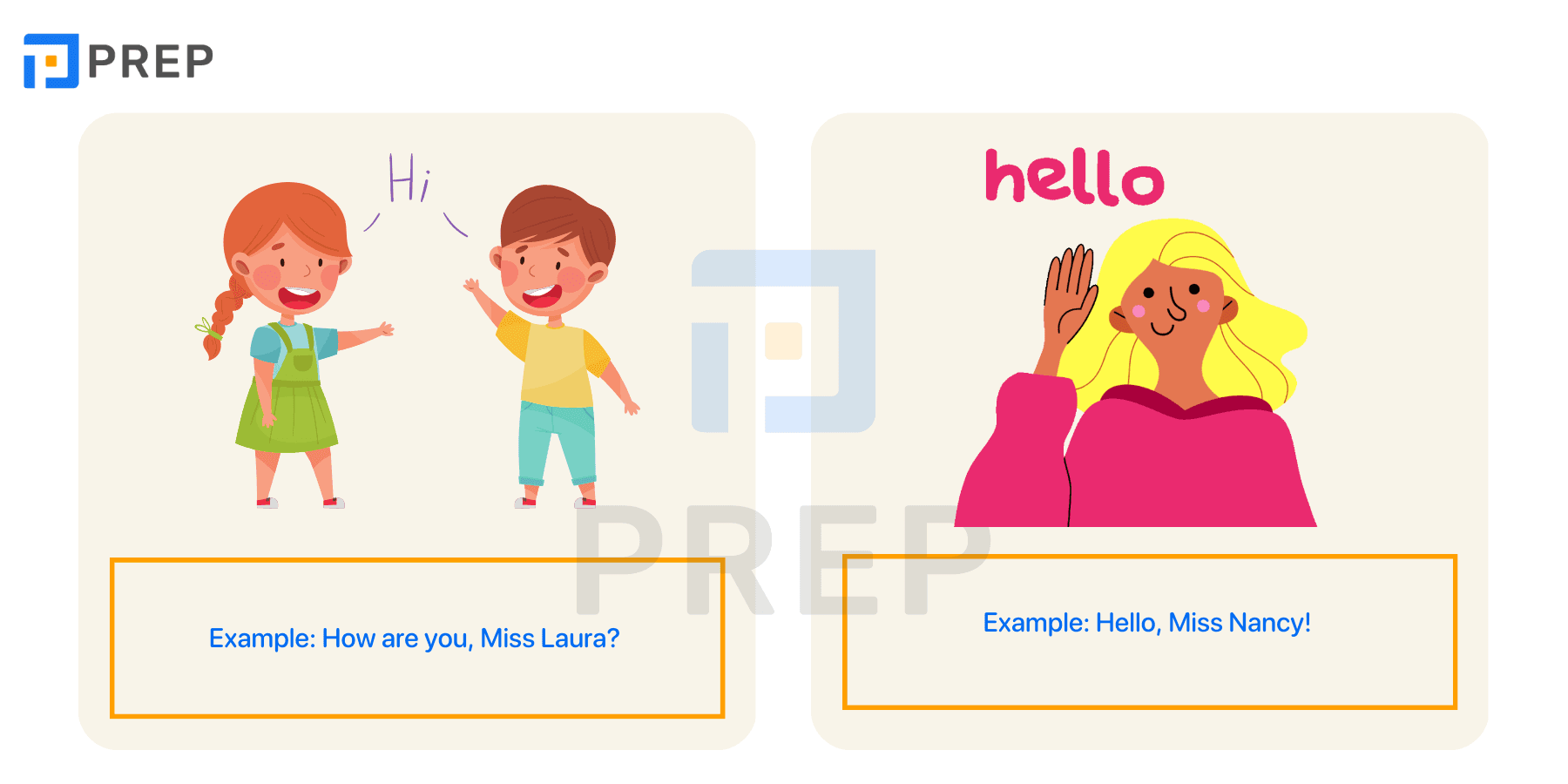
3. What is Mrs.?
Mrs. means "madam" or "wife" and is an abbreviation of the word "missus". It is a title in English used for married women. In some cases, divorced women may still prefer to be addressed with the title Mrs., although this depends on their age and personal preference.
Mrs + Name/ job titile/ full name
For example:
- Address the envelope to Mrs. Gary Belmont.
- Mrs. James will go with me to the exhibition tomorrow.

4. What is Ms.?
Ms. is an English term formed by combining the words "miss" and "missus." Ms. means "miss" or "madam." This title in English is usually placed before the name of a woman, regardless of her marital status or age.
Ms + Name/ Job title/ Full name
For example:
- It’s lovely to meet you, Ms. Maria.
- Miss Rebecca was my sixth-grade math teacher.

5. What are Sir and Madam?
In formal and polite communication settings or in situations related to work, for individuals of higher age, status, or authority, if the caller does not know their name, titles in English such as Sir – /sɜːr/ and Madam (Ma'am) – /ˈmæd.əm/ can be used without the need for a specific name following them.
- Would you like to see the menu, sir?
- May I carry your suitcases for you, Madam?

III. Notes on English titles
Here are some notes on using the 6 titles in English mentioned above:
- In British English, there is no need to use a period after Mr, Ms, Mrs. Therefore, when writing a letter, you can write them as Mr, Ms, Mrs.
- In American English, a period should be used after Mr., Ms., Mrs.
- After Mr, Ms, Mrs, Miss, it is mandatory to include the person's name.
- When writing a letter or invitation to a married couple to attend an event, if the wife has taken the husband's last name, you can write "Mr & Mrs + husband's last name."
IV. Other titles in English
In addition to the titles Mr, Mrs, Miss, Ms, Sir, and Madam mentioned above, depending on the purpose and context of communication, there are various other forms of address. Let's explore the following content with PREP to gain a better understanding of this knowledge!
1. Workplace

|
Title |
Meaning |
Example |
|
Doctor + Last name |
When addressing doctors or individuals with a doctoral degree |
See you tomorrow, Dr. Kevin! |
|
Professor + Last name |
When addressing individuals who hold the academic rank of professor |
I have a quick meeting with Professor Matthew today. |
2. Friends and relatives

|
Title |
Meaning |
Example |
|
Honey |
"Familiar greetings" are used by adults to address children or to have conversations with loved ones. |
Hi, honey, I’m home! |
|
Sweetie |
Couples in love frequently use familiar greetings. |
It’s time for bed, sweetie. |
|
Buddy |
It is used to refer to a male friend, a child, or a pet. |
Drink up and go home, buddy. |
3. Authority
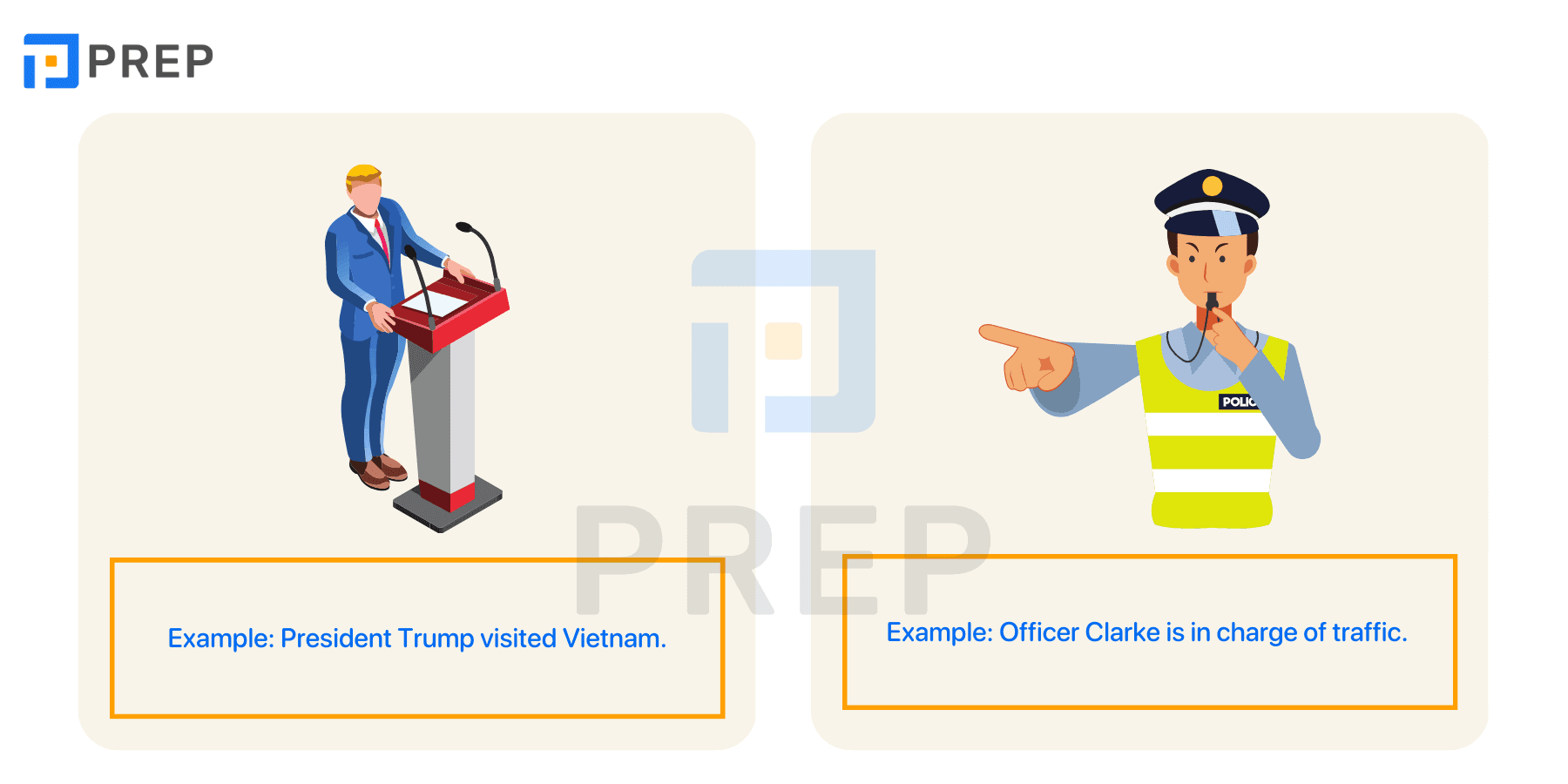
|
Title |
Meaning |
Example |
|
President + Last name |
President + last name is a formal greeting used for the leaders of an organization or a president. |
President Trump visited Vietnam. |
|
Senator + Last name |
Senator + last name is used to address members of the Senate. |
Sergeant Jones is reporting to work. |
|
Officer + Last name |
Officer + last name is commonly used to address police officers, both male and female. |
Officer Clarke is in charge of traffic. |
|
Father + last name/ first name |
Father + last name/full name is a title often used for Catholic priests. |
Are you giving a sermon, Father Adam? |
4. Text
In written communication, especially in emails, you can use the following structure to send a formal greeting at the beginning of the message:
Dear + Mr./Mrs./Miss + Name,
For example:
- Dear Dr. Brown,
- Dear Nancy,
- Dear Mrs. Jones,

V. From Beginner to Band 7.5+
The aforementioned titles in English—Mr, Mrs, Miss, Ms, Sir, and Madam—are indeed prevalent and serve as commonly used forms of address. If you are in the First Step Towards IELTS , these IELTS resources are for you:
- IELTS learning online: Mastering IELTS exam from zero to hero

Hi I'm Chloe, and I am currently serving as an Product Content Administrator at Prep Education. With over five years of experience in independent online IELTS study and exam preparation, I am confident in my ability to support learners in achieving their highest possible scores.
Comment
Premium content
View allPersonalized roadmap
Most read




